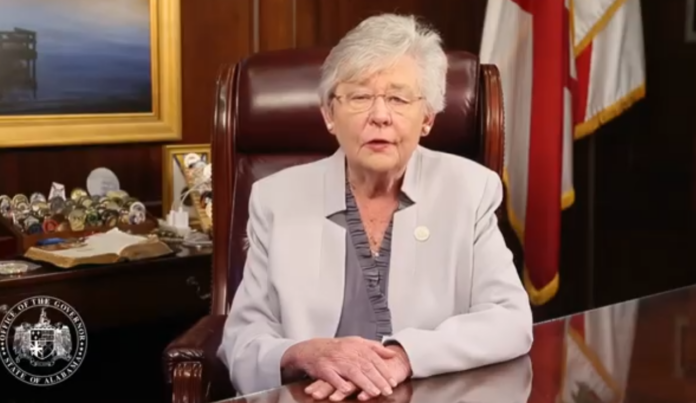MONTGOMERY, Ala. – The Alabama Senate on Thursday gave final passage to legislation that will make a generational investment of $772 million in communities across the state.
HB1, the companion bill to Senate General Fund Chairman Greg Albritton (R-Range)’s SB 1, was sponsored by House Ways and Means General Fund Chairman Steve Clouse (R-Ozark). The bipartisan bill now heads to the desk of Governor Kay Ivey, who had called the legislature into a special session to tackle the legislation.
“Today is a major win for hardworking families and local communities in every corner of Alabama,” said Senate President Pro Tem Greg Reed (R-Jasper). “I congratulate and thank my colleagues in both chambers and on both sides of the aisle, who came together, did the hard work, and showed what the legislature can achieve when working earnestly in a spirit of collaboration and transparency. We also appreciate Governor Ivey and her team, including Finance Director Bill Poole, for their support and cooperation throughout this process. A tremendous amount of conversation and diligence went into this, resulting in the best possible consensus that will allow this money to make a generational impact for Alabama. Chairmen Albritton and Clouse should be commended for their exemplary leadership that made today happen. From expanding high-speed broadband internet access to supporting our health care system and volunteer fire departments, the legislature has delivered a bill that will build stronger hometowns across our great state and increase 21st century opportunity for our children and our children’s children.”
Chairman Greg Albritton spoke on the success of the bill, saying, “The Legislature’s passage of HB1 is a significant victory for the people of Alabama. The positive outcomes that will generate from these critical investments will support our state for generations to come,” said Chairman Greg Albritton. “The bipartisan work that took place in the legislature and the collaboration that transpired between lawmakers, the governor and each agency involved should make each Alabamian very proud. Your state leaders and officials are working on your behalf to ensure your home state is well-equipped to provide the necessary resources and tools for a bright future. This is a great day for Alabama.”
The bill makes supplemental appropriations from three separate funds made possible by the federal American Rescue Plan Act (ARPA): the Coronavirus State Fiscal Recovery Fund, the Coronavirus State Fiscal Recovery Revenue Replacement Fund and the Coronavirus Capital Projects Fund.
Money cannot be intermingled between the three funds, and federal law and regulations restrict how the money can be spent by the State of Alabama.
Of the total $772 million allocated, $443.34 million comes from the Fiscal Recovery Fund, $136.8 million comes from the Revenue Replacement Fund and $191.9 million comes from the Capital Projects Fund.
Out of the Fiscal Recovery Fund, the legislation includes funding for health care, broadband, infrastructure and the unemployment insurance trust fund. The bill allocates Revenue Replacement Fund monies for broadband, health care, telemedicine, rural hospitals, county reimbursements and volunteer fire departments/EMS. The Capital Projects Fund allocation goes toward broadband.
The monetary breakdown for each category is as follows:
Revenue Replacement
o $34 million for broadband
o $36.8 million for mental health, public health, and rehab services including veterans homes and assisted living facilities
o $5 million to expand the utilization of telemedicine
o $30 million for qualifying rural hospital assistance grants
o $11 million for county reimbursements for costs incurred for inmate care during the timeframe of March through December 2021
o $20 million for volunteer fire departments and EMS ($10 million for volunteer fire departments, $10 million for EMS).
State Fiscal Recovery Fund
o $80 million for hospitals and nursing homes
o $51 million for broadband
o $225 million for water and sewer infrastructure improvements ($120 million for emergency projects prioritized by the Alabama Department of Environmental Management, $105 million for matching grants reserved for pilot projects in areas without wastewater systems)
o $79.5 million for unemployment trust fund to offset negative economic impacts stemming from the Covid-19 pandemic
o $7.84 million for the state’s incurred administrative costs
Capital Projects Fund
o $191.9 million for broadband
The funds allocated by HB 1 are in addition to the $1.54 billion in Alabama ARPA funds already appropriated last year. An additional $1.06 billion in federal funds will be made available to the State of Alabama in June and will be allocated at a later date.




















